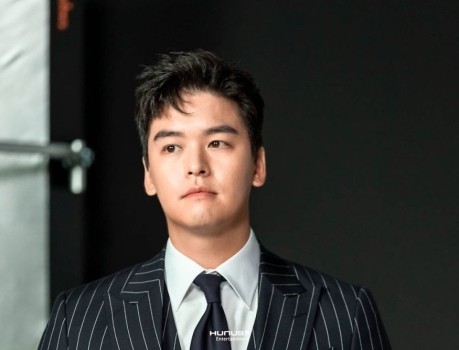Actor Song Seung Hoon, the star of the film "Obsession" and the drama "When A Man Loves" has taken a role in a Chinese film titled "Another Love." The film is based on a best-selling Chinese novel of the same name.
Song Seung Hoon is the latest in a series of Korean stars to choose roles in China. Other stars that also recently appeared in Chinese dramas or films include Kim Tae Hee, Song Hye Kyo, Rain and Kim Bum.
In "Another Love," Song teams up with Chinese movie star Liu Yifei. The popular actress has worked with a Korean star before as she co-starred with Rain in Gao Xizi's film "Hong Yan Lu Shui.
Rain's real life girlfriend Kim Tae Hee has a role in the big-budget 40-episode Chinese drama "Wang Jee Hee," which began filming this month. The actress, last seen in "Jang Ok Jung," plays the wife of the title character.
This year Song Hye Kyo attended the Cannes Film Festival in conjunction with the Chinese film "The Crossing,' directed by John Woo. The movie starred Chinese actors Zhang Ziyi and Huang Xiaoming and Japanese actor Takeshi Kaneshiro. Song Hye Kyo spoke all her lines in Mandarin.
"I still find it difficult to act in Korean," the actress modestly said in an interview with Korea.net. "Can you imagine how hard it must be to juggle all the Mandarin lines while still showing good, emotional acting at the same time?"
It must be a challenge.
Kim Bum, last seen in the drama "Goddess of Fire," appears in a Chinese drama titled "The Micro Era of Love," playing a restaurant owner whose perfectionist tendencies hamper his love life. He is brushing up on his Mandarin.
Korean actors have acted in Chinese productions before. Chae Rim, Jang Nara, Kim So Eun and Lee Da Hae have all played roles there. But the number is definitely escalating as more Chinese viewers are being exposed to the Korean entertainment industry. Chinese audiences have come to know Korean actors through the dramas they watch on Youtube or Yuku. It also helps that Korean actors have fan meetings in China and appear on variety shows.
In 2013 a Beijing newspaper Cheonbao said that Korean actors had taken as many as 10 leading roles since 2011, while they only filled 20 roles in the previous decade.
Along with the audience demand for Korean stars, the newspaper also said that Korean actors are paid less than their Chinese counterparts. And it's attractive to Korean stars because they earn more in China than they might in Korea. Also, production crews reported finding it easier to work with Korean stars as they are used to punishing k-drama schedules and make fewer requests.
If this trend continues, Korean actors who speak Mandarin may have a definite advantage.












